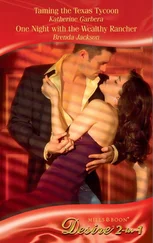The crew burst out laughing. Like me, they took it as a joke about the anchorman’s inevitably inflated sense of self-importance. Felicia, earnest and unfailingly polite, flushed and, speaking rapidly now, assured us that she wasn’t making a joke. Her point was that she had read Tolle’s books and found them personally useful. More than that, Oprah had been heavily promoting his latest volume, and she thought Tolle might make a good story.
Fair enough. I was always looking for stories, and this one—featuring an Oprah-approved self-help swami—sounded like it might include the requisite exotica. So when I got home later that day, I went online and ordered the book.
By the time his book arrived at my apartment a few days later, I had almost forgotten about Eckhart Tolle. I saw the cheesy orange cover shining dully through Amazon’s irrationally excessive bubble wrap. It bore the rather overwrought title A New Earth: Awakening to Your Life’s Purpose , as well as the seal of Oprah’s Book Club.
I propped it on my chest that night, an unsuspecting Bianca sleeping to my left, blissfully unaware that her future husband was being sucked into a strange vortex.
At first, the book struck me as irredeemable poppycock. I was put off by the strained stateliness of Tolle’s writing, as well as its nearly indecipherable turgidity. How could Oprah fans stand to drink from a fire hose of jargon like “conditioned mind structures” and “the one indwelling consciousness”? What’s more, the guy was stunningly grandiose. He referred to his book as a “transformational device,” and promised that, as you read, a “shift takes place within you.”
I lay there rolling my eyes, quietly cursing Felicia for inflicting this upon me. But just when I thought I’d been defeated by all the porridge about “inner opening” and the impending “shift in planetary consciousness,” a clearing appeared in the spiritual thicket. Tolle began to unfurl a fascinating thesis, one that made me think he must have somehow spent an enormous amount of time inside my skull.
Our entire lives, he argued, are governed by a voice in our heads. This voice is engaged in a ceaseless stream of thinking—most of it negative, repetitive, and self-referential. It squawks away at us from the minute we open our eyes in the morning until the minute we fall asleep at night, if it allows us to sleep at all. Talk, talk, talk: the voice is constantly judging and labeling everything in its field of vision. Its targets aren’t just external; it often viciously taunts us , too.
Apparently Felicia was right when she got all flustered on that little side street in Jersey City: Tolle wasn’t using the term “ego” the way most of us normally do. He wasn’t referring solely to pride, conceit, or amour propre of the variety often displayed by people who appear on television for a living. Nor was he using it in the Freudian sense, as the psychological mechanism that mediates between our id and our superego, our desires and our morality. He meant something much larger. According to Tolle, the ego is our inner narrator, our sense of “I.”
Certainly Tolle had described my mind to a T. While I had never really thought about it before, I suppose I’d always assumed that the voice in my head was me: my ghostly internal anchorman, hosting the coverage of my life, engaged in an unsolicited stream of insensitive questions and obnoxious color commentary.
Per Tolle, even though the voice is the ridgepole of our interior lives, most of us take it completely for granted. He argued that the failure to recognize thoughts for what they are—quantum bursts of psychic energy that exist solely in your head—is the primordial human error. When we are unaware of “the egoic mind” ( egoic being a word he appears to have invented), we blindly act out our thoughts, and often the results are not pretty.
I began to recall some of the many brilliant suggestions the voice in my head had made to me over the years.
You should do cocaine.
You’re right to be angry at that producer. Throw your papers in the air!
That Pakistani protestor is way out of line. Even though he’s surrounded by a thousand angry friends, you should have a shouting match with him.
I’d been reading for an hour now, and Tolle had my full attention. As I turned the pages, he began to list some of the ego’s signature moves, many of which seemed to be grabbed directly from my behavioral repertoire.
The ego is never satisfied. No matter how much stuff we buy, no matter how many arguments we win or delicious meals we consume, the ego never feels complete. Did this not describe my bottomless appetite for airtime—or drugs? Is this what my friend Simon meant when he said I had the “soul of a junkie”?
The ego is constantly comparing itself to others. It has us measuring our self-worth against the looks, wealth, and social status of everyone else. Did this not explain some of my worrying at work?
The ego thrives on drama. It keeps our old resentments and grievances alive through compulsive thought. Is this why I would sometimes come home to Bianca, scowling over some issue at the office?
Perhaps the most powerful Tollean insight into the ego was that it is obsessed with the past and the future, at the expense of the present. We “live almost exclusively through memory and anticipation,” he wrote. We wax nostalgic for prior events during which we were doubtless ruminating or projecting. We cast forward to future events during which we will certainly be fantasizing. But as Tolle pointed out, it is, quite literally, always Now. (He liked to capitalize the word.) The present moment is all we’ve got. We experienced everything in our past through the present moment, and we will experience everything in the future the same way.
I was a pro, I realized, at avoiding the present. A ringer. This had been true my whole life. My mom always described me as an impatient kid, rushing through everything. In eighth grade, an ex-girlfriend told me, “When you have one foot in the future and the other in the past, you piss on the present.” Now, as a grown-up in the deadline-dominated world of news, I was always hurtling headlong through the day, checking things off my to-do list, constantly picturing completion instead of calmly and carefully enjoying the process. The unspoken assumption behind most of my forward momentum was that whatever was coming next would definitely be better. Only when I reached that ineffable . . . whatever . . . would I be totally satisfied. Some of the only times I could recall being fully present were when I was in a war zone or on drugs. No wonder one begat the other.
It finally hit me that I’d been sleepwalking through much of my life—swept along on a tide of automatic, habitual behavior. All of the things I was most ashamed of in recent years could be explained through the ego: chasing the thrill of war without contemplating the consequences, replacing the combat high with coke and ecstasy, reflexively and unfairly judging people of faith, getting carried away with anxiety about work, neglecting Bianca to tryst with my BlackBerry, obsessing about my stupid hair.
It was a little embarrassing to be reading a self-help writer and thinking, This guy gets me . But it was in this moment, lying in bed late at night, that I first realized that the voice in my head—the running commentary that had dominated my field of consciousness since I could remember—was kind of an asshole.
This is where things got confusing, though. Just as I was coming to the conclusion that Tolle was a sage who perhaps held the key to all of my problems, he started saying things that sounded to me like some ludicrous shit. It was no longer his rococo writing style that was throwing me; I was getting used to that. No, now what was sticking in my craw was his penchant for making seemingly wild, pseudoscientific claims. He argued that living in the present moment slowed down the aging process and made the “molecular structure” of the body “less dense.” He asserted that “thoughts have their own range of frequencies, with negative thoughts at the lower end of the scale and positive thoughts at the higher.” Sometimes in the course of a single sentence, he would say something lucid and compelling, and then seem to veer straight into crazy town. I honestly could not figure out if he was a genius or a lunatic.
Читать дальше












